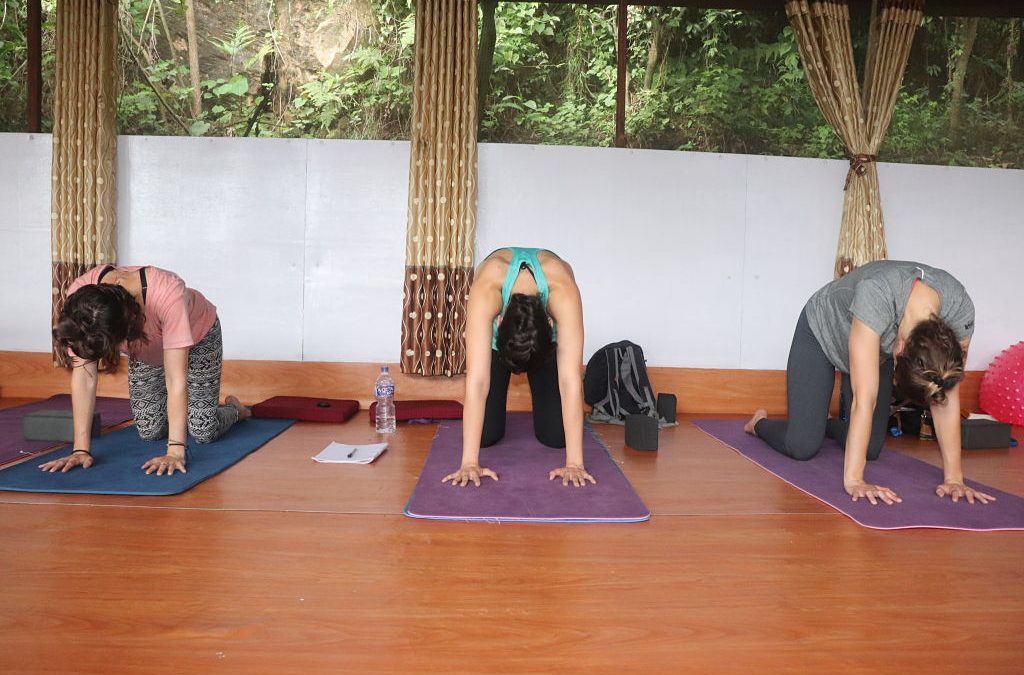Many questions are being raised regarding Ayurveda and yoga. Actually, Ayurveda and yoga are complementary to each other. The relationship between yoga and Ayurveda is like nail and nail-muscle. One becomes incomplete without another’s presence. To make clearer, the relation of yoga and Ayurveda can also be described as two sides of the same coin. Veda is the root of these both sciences, address disease eradication, health, and all-round progress including spirituality. Ayurveda is the healing facet; yoga is the practical and spiritual aspect of the Vedas. Mutually they account an overall accessibility to the soundness of the body, the mind, and the soul. Some people arguing that Patanjali is the father of yoga, while Charaka normally considered as the father of Ayurveda, so how there is the same origin for Yoga and Ayurveda. The reality is- many people studies Veda; some teaches the knowledge of yoga while another provides knowledge on Ayurveda. Another probable reality is- one and the same person is known in the Vedic period by various names during his peregrination to ravel the schoolings of these primitive
The histories of many yogis reveal that they have learned when they went to forest and caves for a higher practice of yoga, about many types of herbs, plants and other natural processes to heal the body and energize it. Some of the herbs were found to be very powerful to save the life of a person and to give accomplishment. Laxmana was given a herb named “Sanjivani” when he was near to death. Then Laxman was cured by Sanjivani. The yogis used to take the support of ayurvedic herbs and process during their practice. They used to eat, drink and live the life according to Ayurveda rule which leads them to final success. They helped humanity for bestowing health through the Ayurveda. In the ancient time, there was the perfect method of Ayurveda for curing diseases and remaining healthy. A short hint of herbal medicine is given in the chapter Kaivalyapada, Patanjali yoga sutra. It shows Ayurveda is always applied in yoga. Thus, it is clear that yoga and Ayurveda are inseparable entities to each other.
Both sciences, yoga, and Ayurveda, have parallel tenet: a complete well-being of an individual and the motive of helping an individual re-join to their true and original nature through their direct experience. Yoga sets up the body and mind for definitive emancipation and enlightenment while Ayurveda expounds the several natural methods to keep the body and mind salubrious. Ayurveda and Yoga, both underline our nigh relationship with nature and how to change our environment a way to harmonize with our recondite and deepest nature.
Many people in today’s world think as “asanas (posture) only,” something like a stretching and exercise medium to keep the body resilient and brisk. People are exerted to yoga as an aisle to keep agile even though the purpose of the physical practice of yoga is to help the mind to become spotless or pure and generate higher mind-body awareness. A clean mind is not swayed by stress and gives the output as a healthy body begetting unification with one’s own dinkum, essential nature. Suchwise, Ayurveda gives knowledge of how to maintain the body healthy and how this likened to one’s spiritual path. Ayurveda allocutes our overall lifestyle including various exercises and yoga. However, Ayurveda is extremely individualistic and perceives each person as peerless and an individual’s way toward complete health as a unique path. In other words, each has an identical and original path for perfect health. Hereupon, what is better for each individual is unexampled, nonpareil and unique to that individual alone. This is depictured as an individual’s unique hereditary background composing or dosha (Vat, Kaf, Pitta) in Sanskrit. A person’s constitution depicts who the individual is at the ultimate basic level. Ayurveda treats as per the individual’s fundamental level.
The above concept is noticeable as modern healing systems have also become fruitful as they understood the concept of the unique constitution to each individual nature. This helped to rectify different mistakes of modern healing systems. Ayurveda rejects the “Fits all” theory, is confess the principle that “nothing is right for everyone and everything is right for someone.” Thus, Ayurveda is rooted upon accepting personal requirements and what is good only for the person – not the crowd – and acquiring those needs to establish perfect adjustment.
Ayurveda not only sheds light on the diet, herbs,
Now the question arises- how to know inherent constitution? If you are visiting in Nepal, you have the best option to learn everything in Nepal Yoga Home. Other several alternatives are health journals or websites that analyze your constitution according to your answers to a particular set of questions. Yet, sometimes there can be some chances of errors. So, do not rely solely on this remark unless you take guidance of a certified and experienced Ayurvedic doctor. If you are aware and conscious on your body you will be able to listen to your body and realize the constitution. If you are planning to change asanas, diet or lifestyle for harmonious life, you first consult with an Ayurvedic Health professional then only jump in it.
To sum up, we can say that both Ayurveda and yoga are divine science, a natural gift from the existence to bestow a happy and harmonious life and proceed towards the real aim of life.

